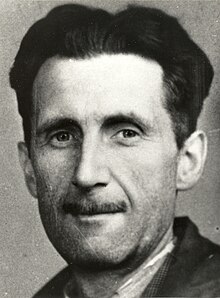
Animal Farm is a beast fable, in the form of a satirical allegorical novella, by George Orwell, first published in England on 17 August 1945. It tells the story of a group of anthropomorphic farm animals who rebel against their human farmer, hoping to create a society where the animals can be equal, free, and happy. Ultimately, the rebellion is betrayed and, under the dictatorship of a pig named Napoleon, the farm ends up in a state as bad as it was before.

Eric Arthur Blair, better known by his pen name George Orwell, was an English novelist, essayist, journalist, and critic. His work is characterised by lucid prose, social criticism, opposition to totalitarianism, and support of democratic socialism.

Uncle Tom's Cabin; or, Life Among the Lowly is an anti-slavery novel by American author Harriet Beecher Stowe. Published in two volumes in 1852, the novel had a profound effect on attitudes toward African Americans and slavery in the U.S., and is said to have "helped lay the groundwork for the [American] Civil War".

Percy Wyndham Lewis was a British writer, painter and critic. He was a co-founder of the Vorticist movement in art and edited BLAST, the literary magazine of the Vorticists.
This article contains information about the literary events and publications of 1903.
This article contains information about the literary events and publications of 1851.

Kenneth Lewis Roberts was an American writer of historical novels. He worked first as a journalist, becoming nationally known for his work with the Saturday Evening Post from 1919 to 1928, and then as a popular novelist. Born in Kennebunk, Maine, Roberts specialized in regionalist historical fiction, often writing about his native state and its terrain and also about other upper New England states and scenes. For example, the main characters in Arundel and Rabble in Arms are from Kennebunkport, the main character in Northwest Passage is from Kittery, Maine and has friends in Portsmouth, New Hampshire, and the main character in Oliver Wiswell is from Milton, Massachusetts.

Mulk Raj Anand was an Indian writer in English, recognised for his depiction of the lives of the poorer castes in traditional Indian society. One of the pioneers of Indo-Anglian fiction, he, together with R. K. Narayan, Ahmad Ali and Raja Rao, was one of the first India-based writers in English to gain an International readership. Anand is admired for his novels and short stories, which have acquired the status of classics of modern Indian English literature; they are noted for their perceptive insight into the lives of the oppressed and for their analysis of impoverishment, exploitation and misfortune. He became known for his protest novel Untouchable (1935), followed by other works on the Indian poor such as Coolie (1936) and Two Leaves and a Bud (1937). He is also noted for being among the first writers to incorporate Punjabi and Hindustani idioms into English, and was a recipient of the civilian honour of the Padma Bhushan.
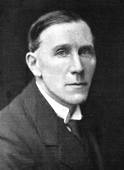
John Davys Beresford was an English writer, now remembered for his early science fiction and some short stories in the horror story and ghost story genres. Beresford was a great admirer of H.G. Wells, and wrote the first critical study of Wells in 1915. His Wellsian novel The Hampdenshire Wonder was a major influence on Olaf Stapledon. His other science-fiction novels include The Riddle of the Tower, about a dystopian, hive-like society.
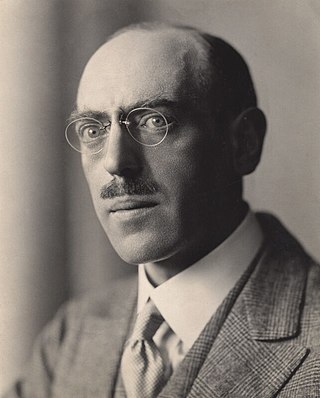
Walter Lionel George was an English writer, chiefly known for his popular fiction, which included feminist, pacifist, and pro-labour themes.
The Saturday Book was an annual miscellany, published from 1941 to 1975, reaching 34 volumes. It was edited initially by Leonard Russell and from 1952 by John Hadfield. A final compilation, The Best of the Saturday Book, was published in 1981. The publisher throughout was Hutchinson's.

John Habberton was an American author and journalist.

John Carey, is a British literary critic, and post-retirement (2002) emeritus Merton Professor of English Literature at the University of Oxford. He is known for his anti-elitist views on high culture, as expounded in several books. He has twice chaired the Booker Prize committee, in 1982 and 2003, and chaired the judging panel for the first Man Booker International Prize in 2005.
Frederic Michael Raphael is an American British BAFTA- and Academy Award-winning screenwriter, biographer, non-fiction writer, novelist, and journalist.
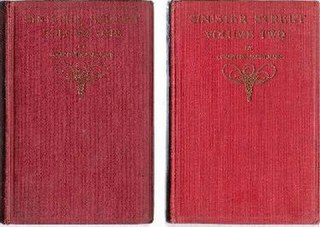
Sinister Street is a 1913–1914 novel by Compton Mackenzie. It is a kind of Bildungsroman or novel about growing up, and concerns two children, Michael Fane and his sister Stella. Both of them are born out of wedlock, something which was frowned upon at the time, but to rich parents.
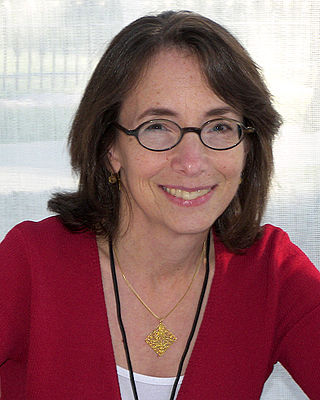
Ann Packer is an American novelist and short story writer, perhaps best known for her critically acclaimed first novel The Dive From Clausen's Pier. She is the recipient of a James Michener Award and a National Endowment for the Arts fellowship.
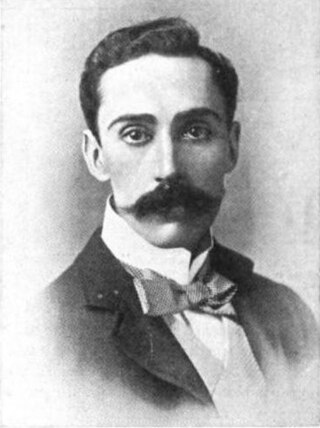
Leonard Merrick was an English novelist. Although largely forgotten today, he was widely admired by his peers; J. M. Barrie called Merrick the "novelist's novelist."
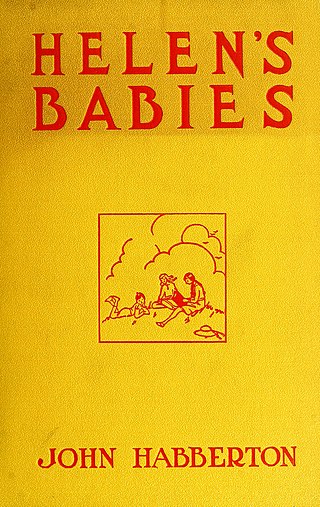
Helen's Babies is a humorous novel by American journalist and author John Habberton, first published in 1876.
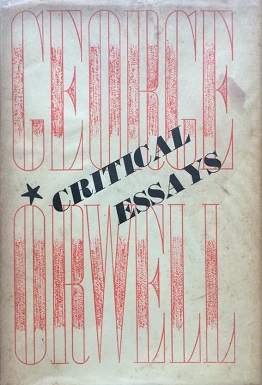
Critical Essays (1946) is a collection of wartime pieces by George Orwell. It covers a variety of topics in English literature, and also includes some pioneering studies of popular culture. It was acclaimed by critics, and Orwell himself thought it one of his most important books.
John Kenneth Tyrrell McLeish, known as Kenneth McLeish (1940–1997) was a British writer, playwright and translator. McLeish, "the most widely respected and prolific translator of drama in Britain", translated all the surviving classical Greek plays, most plays by Henrik Ibsen and Georges Feydeau, and individual plays by Plautus, Molière, Alfred Jarry, August Strindberg, Ödön von Horváth and Eugène Marin Labiche.
